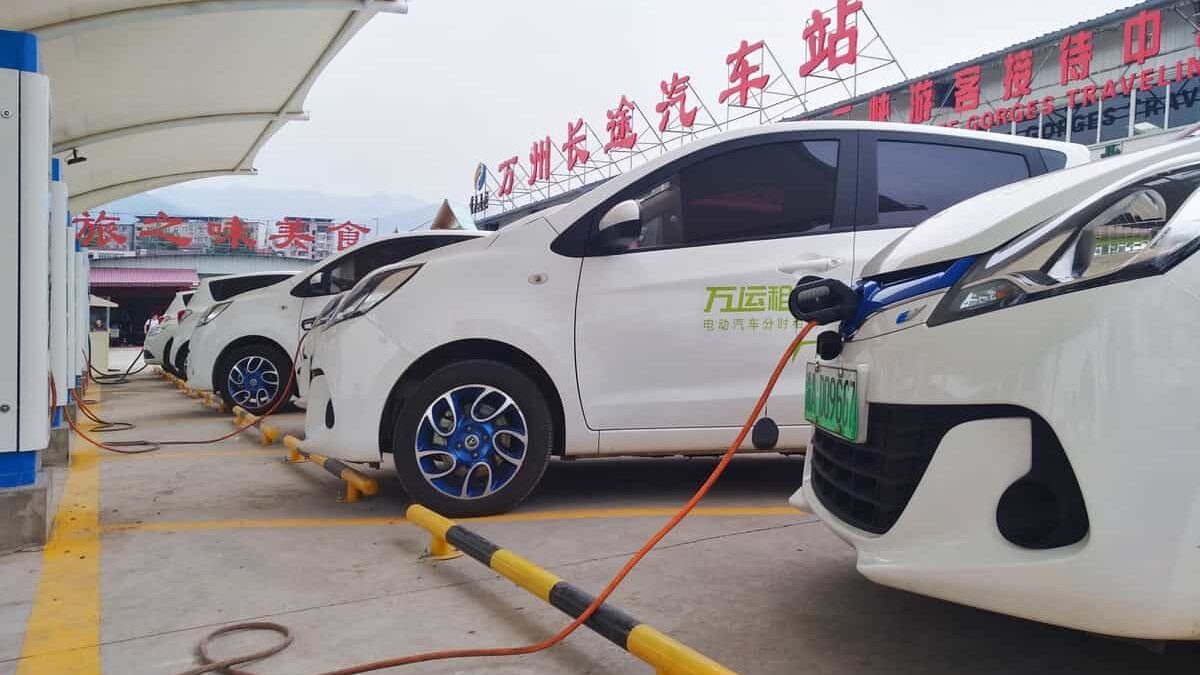Chinese electric automakers enjoy a 10,000-euro cost advantage over European EV makers, according to Auto Supplier Forvia‘s CEO. That value represents an enormous leverage that will exert pressure on European EV makers in their domestic market, as per Reuters.
Forvia CEO Patrick Koller warned that Europe would unlikely halt imports as Chinese EV makers keep producing “good vehicles.” Koller informed Reuters in an interview that the situation is “more dangerous” for Europe than for the US. High duties have constrained the US market share of China.
Pricing differences
Europe’s average EV prices have risen from 48,942 euros to 55,821 euros since 2015. At the same time, it rose from 53,038 euros to 63,864 euros in the US.
On the other hand, China’s average EV price declined from 66,819 euros to 31,829 euros. According to a report by JATO Dynamics, which analyzes data on market trends, that amount is less expensive than the cost of gasoline-powered cars.
Notably, Chinese electric automakers have a substantial advantage in terms of the following over European EV makers:
- Lower research and development costs
- Lower levels of capital spending
- Lower labor costs
EV imports in Europe
Chinese and other global EV makers like Tesla strive to increase shipment in Europe because it is largely accessible to EV imports from the world’s largest auto market.
It is also worth noting that China-made EVs have received five-star safety certifications from European regulators. It debunks the stereotype that they are of poorer quality.
China’s Market Share: Europe and US
French auto consultancy Inovev revealed that China accounts for about 5.8% of Europe’s electric vehicle market share. As Chinese firms produce more affordable versions, it forecasts a sharp increase in the upcoming years.
On the other hand, China’s share in the US auto market remains minimal due to heavy levies placed on Chinese-made vehicles in the US.
Koller stated there is uncertainty over the forecast for the global automobile market in 2023. Prospects would improve if the war in Ukraine concluded, but a “far darker” issue might result from a longer, more severe conflict.
About Forvia
French auto supplier Faurecia founded Forvia by acquiring 82% of German supplier Hella.
Remarkably, it is the world’s seventh-largest producer of automobile components. It serves several Chinese automakers, including the market leader in affordable EVs, BYD.
Koller stated that Forvia would increase its investments in the US to benefit from the federal incentives offered in the IRA.
Furthermore, Forvia believes that offering fuel cell technology for North American pickup trucks will be profitable. By 2025, Koller expects a fuel cell truck to be introduced in the US.
That said, Forvia has invested in fuel cell tech firms Symbio and Stellantis NV, which owns the Ram truck brand.
It is also worth noting that Forvia aims to increase its revenue to 30 billion euros by 2025. It is also on the course of offloading 1 billion euros worth of assets in 2023.
Forvia can still carry out its asset sales and cost-cutting measures, despite not owning 18% of the shares in Hella. Elliott Management, an activist investment firm, owns 10.75% of Hella.
Nonetheless, Forvia CEO Patrick Koller stated that the company takes time to own the remaining Hella shares due to its current debts.
To entice consumers away from Chinese EVs, the European government must plan ways to lower the current EV pricing in the continent. They could provide special incentives, tax breaks, etc. for their local automakers.

